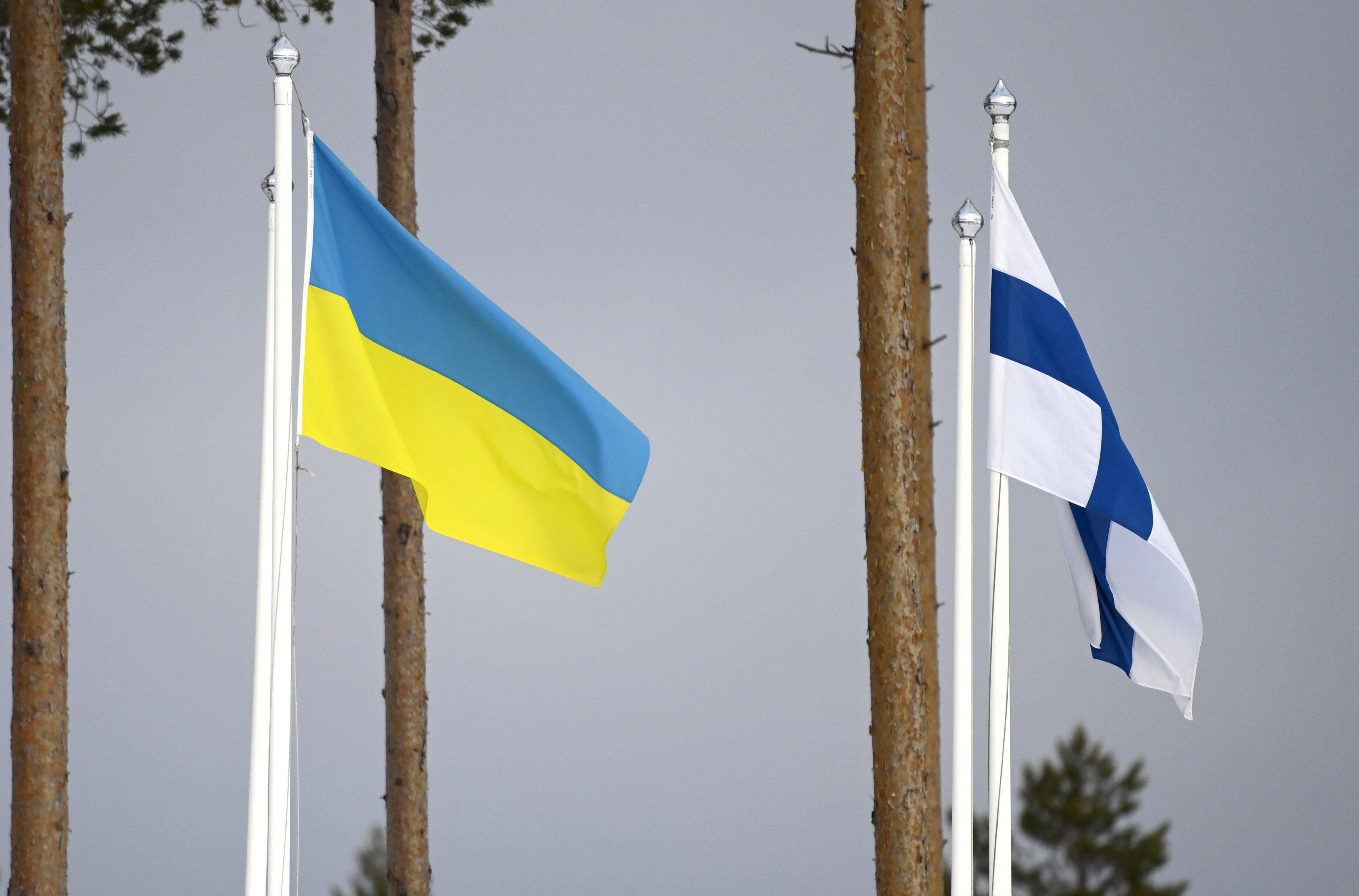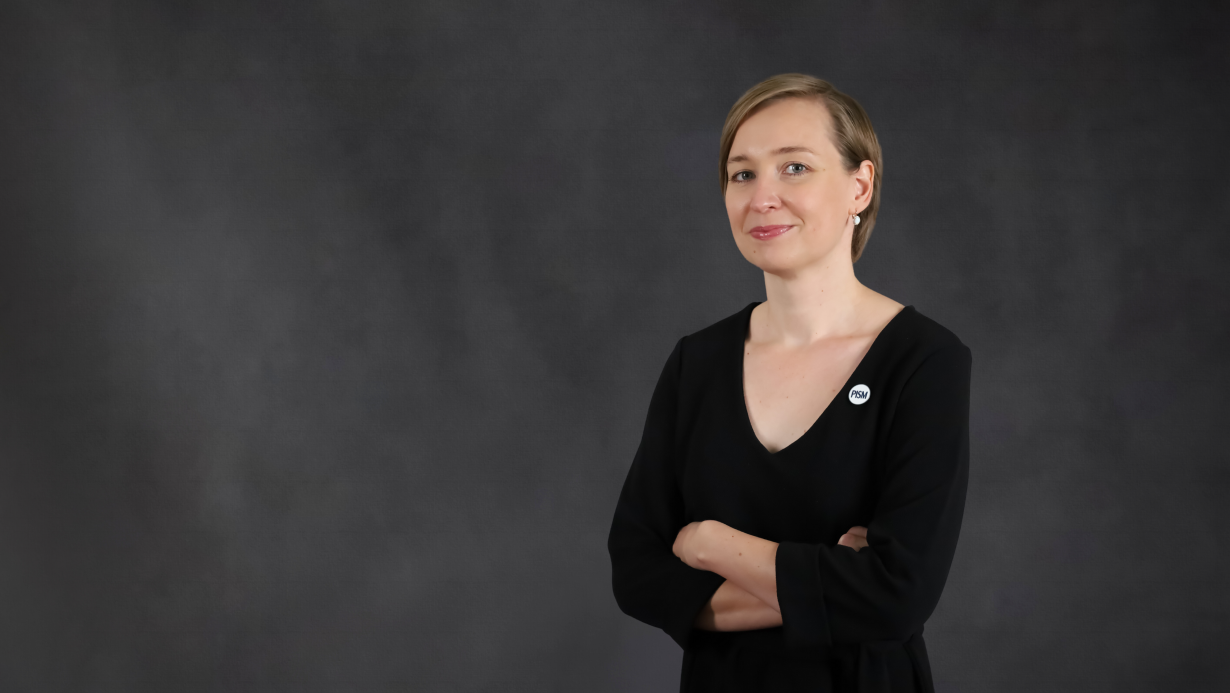Finland's Response to Russia's Attack on Ukraine
The Russian military action against Ukraine initiated profound changes in Finnish foreign and security policy and in the society’s attitude towards Finland’s membership of NATO, which the majority of Finns now support.
 Fot. Vesa Moilanen/imago sport/Forum
Fot. Vesa Moilanen/imago sport/Forum
What has been the reaction of the authorities?
Finnish President Sauli Niinistö and Prime Minister Sanna Marin on 24 February—the day of the invasion—condemned the Russian attack, calling it a gross violation of international law. They demanded an immediate end to hostilities by Russia and expressed support for the independence, sovereignty, and territorial integrity of Ukraine. The Finnish government assured Ukraine of solidarity, which took the form of concrete material aid on the first day of the war. Finland had expressed concern in December after Russian troops started gathering on the border with Ukraine. Niinistö, who maintained friendly relations with Russia in recent years and had a personal relationship with President Vladimir Putin, engaged in negotiations, but in February he signalled in press interviews the ineffectiveness of the dialogue with the Russian leader and in harsh statements called on the Russian authorities to de-escalate.
What bilateral actions has Finland taken?
Finland is actively involved in helping Ukraine. On 24 February, it supported the country with €14 million (€8.2 million for humanitarian aid and €5.8 million for development aid). It also provides humanitarian aid under the EU Civil Protection Mechanism by sending to Ukraine, among other materials, protective medical equipment. In addition, on 2 March, Finland sent 2,500 assault rifles, 150,000 rounds of ammunition, and 1,500 anti-tank weapons (Poland helped in the transport), breaking with its longstanding policy of not delivering weapons to war zones. It also is supplying Ukraine with other military equipment, including helmets, body armour (2,000 units each), stretchers, emergency medical equipment, and 70,000 food packages. The government also allowed Estonia to donate to Ukraine field guns and ammunition previously owned by Finland. As part of the restrictions on Russia, on 26 February Finland closed its airspace to Russian aircraft. In addition, on 22 February the Finnish Ministry of Defence ordered a new risk assessment of the construction of a new reactor at the Hanhikivi nuclear power plant. Rosatom, which owns 35% of the project management consortium, had been contracted to carry out the work.
How does the war affect Finland’s security policy?
In the opinion of the Finnish authorities, the Russian aggression against Ukraine significantly worsens the state’s security situation. So far, Finnish security policy has been based on a few pillars: deepened defence cooperation with the Nordic countries, with NATO (also within the Extended Possibilities Partnership), and with the U.S., while maintaining military non-alignment, cooperation within the EU, reliable territorial defence, and compulsory military service. An important element of this was also the political dialogue and economic cooperation with Russia, which were to contribute to stability and keeping tensions under control. With the collapse of bilateral relations with Russia, the foundations of this policy have been shaken. In response, Finland in January raised the readiness of its defence forces. The country also announced it will increase the defence budget and strengthen its own capabilities. Its defence cooperation with the U.S. will be tightened by the purchase of 64 F-35 fighter jets, announced in December 2021. Finland also wants to further strengthen the European pillar of its defence cooperation, for example, through increasing military interoperability. To this end, the Finnish and Swedish armed forces conducted on 2 March joint exercises in the Baltic Sea near Gotland, where four Russian fighters violated Swedish airspace on the same day. Additionally, a public debate on NATO membership has flared up in Finland. President Niinistö participated in a virtual NATO summit on 25 February, but the question of joining the Alliance was not brought up.
What are the Finnish public’s attitudes towards NATO membership and Russia?
Finland is closer to applying for NATO membership than ever before. Public support for joining the Alliance rose to a record 53% after the Russian invasion of Ukraine (28% against, 19% undecided) and was expressed for the first time by more than half of the population. According to polls, if Sweden also decided to apply, Finnish support for NATO membership would rise to 66%. For years, it remained at the level of around 20%, but already in January it reached 30%. This is a radical change in the attitude of Finns towards the country’s accession to the Alliance in a short time. This is related to a shift in the perception of Russia by which now 79% of Finns believe that Russia’s actions pose a threat to Finland, compared to December 2021 when only 15% of respondents were concerned about hostile policy of this country.
What does the debate on NATO membership look like?
The discussion on membership was triggered by Russia’s demands towards NATO, announced in December 2021, including its non-enlargement to the east. In response, the Finnish authorities underlined their exclusive right to decide on their intention to join the Alliance. After the start of the Russian invasion in Ukraine, Russia threatened Finland with the deployment of offensive weapons closer to the more than 1,300 km-long Russian-Finnish border, pointing to “serious military and political consequences” of the country’s further rapprochement with NATO. However, instead of pulling back, these threats only accelerated Finland’s revision of current policy as a non-aligned state. As a result of a citizens’ initiative to hold a referendum on joining the Alliance, a parliamentary debate on the petition took place on 1 March, but it did not turn into a broad discussion on membership. The prime minister emphasised that such a decision requires more time and cannot be made based only on opinion polls. Finland’s foreign and security policy is conducted by the president while the government has an advisory role, but the parliament must authorise the submission of an application for NATO membership. It is more likely now that Finland will apply, especially if the Russian aggression continues.




